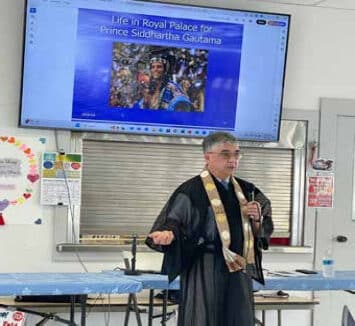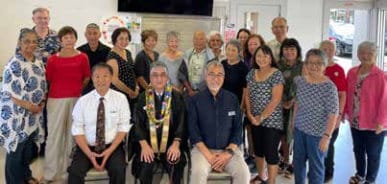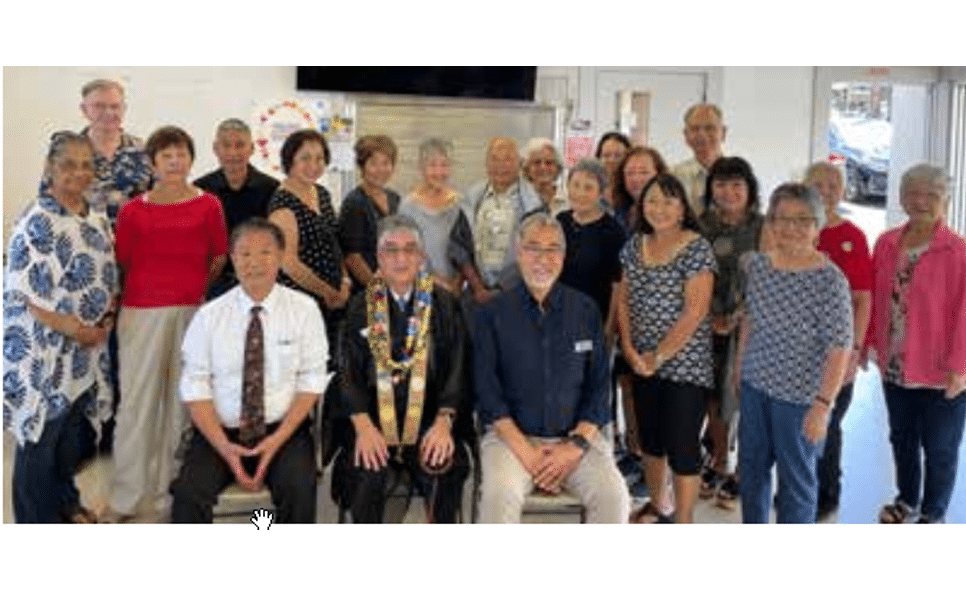On March 3rd and 4th, WHM welcomed Rev. Grant Ikuta as the guest speaker for the Nembutsu Seminar. The weekend provided an opportunity for deep reflection and learning about the teachings of Buddhism, with a focus on the historical Buddha, the development of Mahayana Buddhism, and the practice of Nembutsu in Jodo Shinshu tradition.
Rev. Ikuta began with an introduction to the life of Siddhartha Gautama, the historical Buddha. He described how Siddhartha, born into royalty, lived a sheltered life until he encountered suffering in the world. These experiences led him to renounce his princely status and seek enlightenment, enduring six years of ascetic practice before attaining awakening under the Bodhi tree.
The discussion then shifted to Shinran Shonin, the founder of Jodo Shinshu Buddhism. Rev. Ikuta drew parallels between Shinran’s journey and that of the historical Buddha. Shinran entered monastic life at the age of nine and trained for 20 years on Mount Hiei before following the teachings of Honen, who emphasized reliance on the Nembutsu. Despite facing exile for his beliefs, Shinran continued to share his teachings, eventually writing The True Teaching, Practice, and Realization of the Pure Land Way. Rev. Ikuta highlighted how Shinran’s approach bridged monastic and lay life, making the path of faith accessible to all.
The seminar also explored Mahayana Buddhism and the role of Amida Buddha, the Buddha of infinite wisdom and compassion. Rev. Ikuta explained the concept of merit transference and the significance of Amida Buddha in the last Dharma age, a time when following the historical Buddha’s teachings is said to be more challenging.
A key focus of the seminar was the practice of Nembutsu in Pure Land Buddhism. Rev. Ikuta explained that the recitation of Namu Amida Butsu expresses both taking refuge (Namu) and calling upon the Buddha of infinite light and life (Amida Butsu). He emphasized that the practice is not about repetition but about awakening to Amida’s boundless compassion. Participants also discussed different pronunciations of the phrase and how the essence of Nembutsu remains unchanged regardless of variation.
On Sunday morning, the discussion turned to foundational Buddhist teachings and the practice of Jodo Shinshu. Participants explored the concept of shinjin (trusting heart) and ways to explain it to non-Buddhists in an accessible way. They also reflected on the meaning of “hearing” and “listening” in Buddhist practice, emphasizing how true awakening comes through deeply listening to the Dharma. Additionally, they examined the writings of Shinran, particularly the idea of the “one-thought moment” of faith—a profound realization of Amida’s compassion.
The seminar provided a meaningful time for learning, reflection, and spiritual growth. WHM expresses its gratitude to Rev. Grant Ikuta for leading such an engaging and insightful weekend.


